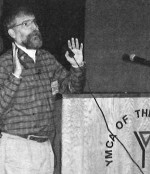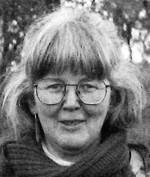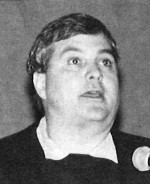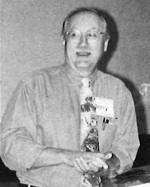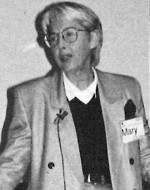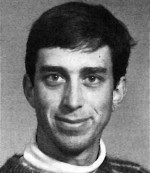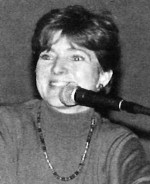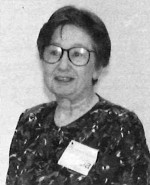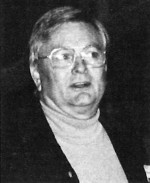Network intersite research and synthesis was the theme of the third LTER All Scientists Meeting September 19-23, 1993 in Estes Park, Colorado, which was attended by over 500 participants. LTER scientists, graduate students, Network Office staff, and representatives of U.S. agencies and universities, as well as a large number of international guests, viewed 170 posters and attended 21 workshops, five demonstrations and 39 presentations, including 19 on current research at LTER sites. The meeting was unique in its emphasis on the network-level synthesis across the LTER Network now and in the next six years, until the year 2000.
Workshops Result in Comparative Studies Plans
Workshops throughout the four-day meeting resulted in plans for synthesis activities in many areas of LTER research: streams, primary production, regionalization and parameterization of regional models, biodiversity, soil physical and chemical problems, N mineralization, paleoecology, landscape characterization and geomorphic processes. While most workshops were organized around topical themes, such as regional research or foodwebs or streams, all participants joined in an exercise to determine ways to develop commonality in long-term datasets. Access to long-term datasets will be central over the next decade as LTER scientists undertake more comparative and synthesis studies. With an overall objective of improving the potential for multisite comparisons, participants in this major workshop broke into working groups to consider necessary parameters, standards or protocols, experiments and monitoring, questions or hypotheses, and where any significant aggregate of sites exists.
Other workshop topics included: Landscape CO2 Dynamics, Trace Gas Fluxes, Regional Research, Networking Resources, Mapping Soils, Roots, Streams, CENTURY-GEM, El Niño, Forest Canopy, Disturbance, Alkalinity, EOS, Soil Biodiversity, Litter Decomposition, and Foodwebs, among many others.
“Site Bite” Presentations
Another unusual aspect of the meeting was the “Site Bites” presentation section. For an hour each morning, representatives of LTER sites had 10 minutes each to introduce current research themes. Other sites presented a new scientific theory or finding. The overall diversity of research was striking.
Graduate Student Participation
A highlight of the meeting was the participation of 93 graduate students representing all 18 LTER sites. Students played an active part in the meeting, co-chairing morning presentation sessions, organizing the display of posters, planning for ongoing graduate student activities, and participating in discussions of future intersite research, much of which they will undoubtedly help to conduct. The students organized topic luncheons to provide an opportunity to talk informally with LTER scientists about specific scientific topics, such as roots, biodiversity, or mentoring. At their own session, students formed an LTER Graduate Student Committee to build on the successful interactions at the meeting.
Network of Networks
The LTER Network has strongly supported the idea of connecting LTER to other similar ecological networks, the “network-of-networks” concept. At the All Scientists Meeting, LTER continued to build linkages by interacting with representatives from several other networks, and the U.S. agencies or organizations that support them, who participated in the proceedings: the National Aeronautics and Space Administration, the USD1 National Park Service, Fish and Wildlife Service, the Environmental Protection Agency’s Environmental Monitoring and Assessment Program, the USDA Forest Service, the Smithsonian Institution, the Ecological Society of America, the NSF Land-Margin Ecosystem Research Program, and the U.S. Geological Survey.
A book of poster and presentation abstracts, available from the Network Office, was prepared and distributed at the meeting. A more complete proceedings, including brief workshop reports, will be compiled and published by the LTER Network Office in 1994.

 Enlarge this image
Enlarge this image